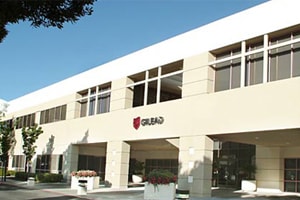 Investors have been clamouring for Gilead Sciences to make a big acquisition to bulk up its pipeline, and the company delivered with a $11.9bn deal to buy Kite Pharma, specialising in a new form of personalised cancer immunotherapy.
Investors have been clamouring for Gilead Sciences to make a big acquisition to bulk up its pipeline, and the company delivered with a $11.9bn deal to buy Kite Pharma, specialising in a new form of personalised cancer immunotherapy.
The deal brings Gilead – best known for its HIV and Hepatitis C virus therapies – right to the forefront of efforts to develop chimeric antigen receptor T cell (CAR-T) therapy, which uses modified versions of a patient’s own white blood cells to attack malignant cells.
At a stroke, Gilead becomes a front-runner in the race to bring the first CAR-T to market with Novartis, claiming Kite’s late-stage candidate axicabtagene ciloleucel (axi-cel or KTE-C19) which has already been submitted for approval as a treatment for B-cell lymphomas including diffuse large-B-cell lymphoma (DLBCL) and is due to get an FDA verdict by November 29. Other CAR-T players, like Juno and Bluebird Bio, are a little further back in development.
Gilead’s deal comes as it faces a sharp slowdown in sales of its HCV therapies – led by Harvoni (sofosbuvir and ledipasvir) and Sovaldi (sofosbuvir) – which has led investors to call for Gilead to use its cash reserves to bulk up in other areas including cancer and fibrotic diseases.
Under the terms of the deal Gilead is paying $180 per share in cash for Kite, a 29% premium over the company’s share price before the deal was announced, which makes it Gilead’s largest takeover since it bought Pharmasset for $11bn in 2011 to bolt on its HCV franchise.
The agreement – due to close in the fourth quarter – comes as the path to approval for CAR-T therapies is now looking clearer, with Novartis claiming a positive vote from an FDA advisory committee for its acute lymphoblastic leukemia (ALL) therapy tisagenlecleucel-T (CTL019).
Commercially the potential for CAR-T is a little murkier, as while potentially curative the procedures are expected to cost hundreds of thousands of dollars per patient and – if approved – they will reach the market at a time when scrutiny of pharma pricing is arguably higher than ever before.
Gilead is no stranger to pricing controversy however, having trod that path with its HCV therapies, and analysts have predicted that CAR-T and other cellular therapies could eventually evolve into a market worth tens of billions of dollars per year.
Evercore ISI analyst Umer Raffat said that 2018 will be a “very important year” for Gilead as investors “will be very focused on validating this purchase … both from launch perspective, and perhaps even more importantly, new clinical data in earlier lines of therapy, as well as other indications like multiple myeloma, and early activity in solid tumours.”
Kite also has a pipeline of other CAR-T therapies following behind axi-cel, including KITE-585, a candidate that targets BCMA expressed in multiple myeloma.
“The field of cell therapy has advanced very quickly, to the point where the science and technology have opened a clear path toward a potential cure for patients,” commented Gilead CEO John Milligan.
“We are greatly impressed with the Kite team and what they have accomplished, and share their belief that cell therapy will be the cornerstone of treating cancer.”




